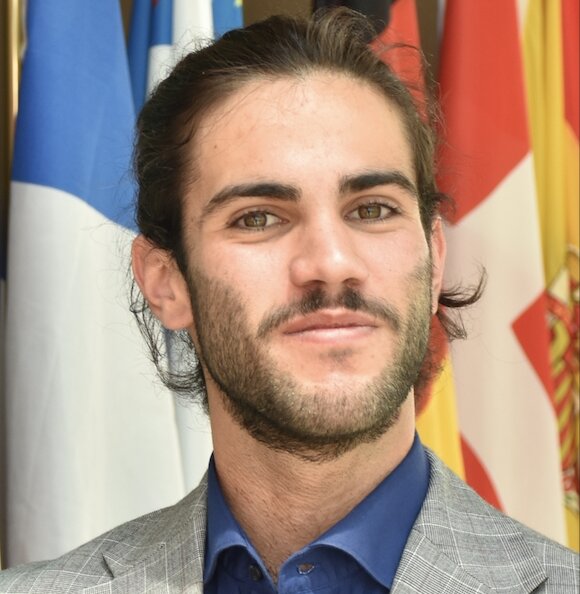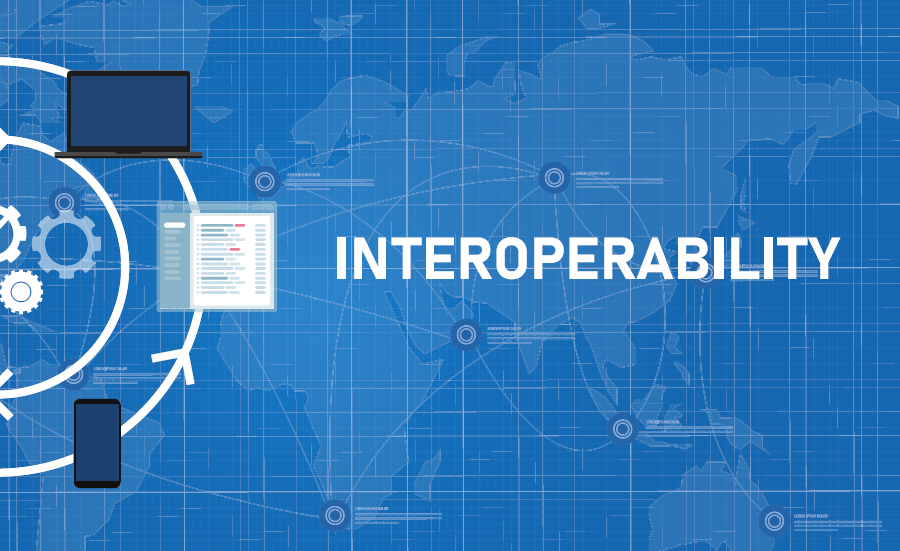
[STUDENT POLICY BRIEF] European Open Source Software Policy as a Countermeasure to Big Tech Dominance
27 July 2023
[STUDENT POLICY BRIEF] What specific measures could the US, the European Union and China take in order to foster and facilitate cross-border data flows?
8 September 2023By Louis Denart, Noah Fröhlich, Nicoletta Koch & Giovanni Maggi
The Digital, Governance and Sovereignty Chair publishes, on a regular basis, the finest essays and papers written by Sciences Po students in the course of their studies.
This Policy Brief has been selected as one of the best works written during the course taught by Pr Florence G’sell “Comparative Approach to Big Tech Regulation” in Spring 2023.
Strong network effects, high switching costs, and economies of scale contribute to a concentration of market power in the social media market. In turn, this contributes to considerable negative economic and socio-political consequences: reduced competition and innovation, limited consumer choice, and increasingly worrying consequences for liberal democracies yielding from an increasing epistemic inequality. The four authors argue that mandated horizontal interoperability for dominant social media platforms is a powerful and appropriate instrument to tackle this problem.
Unlike other approaches, such as breaking up big tech, their interoperability proposal addresses the underlying economic mechanisms of the platform economy. Making services interoperable in the social media market has the potential to enhance the competitiveness of smaller social networks, encourage innovation and diversity in the market, as well as to reduce market concentration and anti-competitive behaviour among incumbent market players.
More specifically, the authors propose to require dominant social media platforms to provide, upon request, smaller social media platforms with interoperable access to seven core functionalities of social media networks that are directly helpful in overcoming network effects: (i) a user’s profile, (ii) connections, and (iii) followers; (iv) text, (v) image, and (vi) video sharing; as well as (vii) content engagement. To ensure the effective implementation of their proposal, they recommend following a three-step approach to making these functions incrementally interoperable.
On a technical level, such an interoperability mandate is feasible, and they discuss two possible technical solutions – open standards or open APIs – which could be technically realized by the dominant platforms.
Finally, presenting existing EU-level legislation on interoperability – namely Article 102 TFEU, the Digital Markets Act, the General Data Protection Regulation, the Computer Programs Directive, and the Payment Service Directive 2 – the authors argue that a mandate for horizontal interoperability would be seamlessly integrable within the larger European legal landscape.

Louis DENART has an academic and professional background in digital and technology policy. He holds a bachelor’s degree in politics, administration and international relations as well as a minor in economics and econometrics. Prior to Sciences Po, Louis worked at the German Foreign Ministry and the United Nations. He is particularly interested in the governance of artificial intelligence and the countering of hybrid threats amid rising geopolitical competition.
Master in Public Policy at the School of Public Affairs, Sciences Po Paris.
Policy stream: Digital, New Technology and Public Policy

Noah FRÖHLICH holds a bachelor in Political Science from Freie Universität Berlin. His research interests include political sociology, election studies, and populism. Noah gained professional experience as Policy Advisor for a Member of the German Parliament, focusing on eHealth.
Master in European Affairs at the School of Public Affairs, Sciences Po Paris.
Policy stream: Digital, New Technology and Public Policy

Nicoletta KOCH is a dual degree master student in European Affairs at Sciences Po Paris and Freie Universität Berlin. She holds a bachelor in Politics, Psychology, Law and Economics from the University of Amsterdam where she majored in law. Nicoletta enjoys approaching digital policy from a multidisciplinary perspective and is particularly interested in the geopolitics of digital technologies as well as the platformization of infrastructures.
Master in European Affairs at the School of Public Affairs, Sciences Po Paris.
Policy stream: Digital, New Technology and Public Policy

Giovanni MAGGI is a master student in the Digital, New Technology and Public Policy stream of the Master in European Affairs at Sciences Po. He holds a bachelor in Philosophy, International and Economic Studies from Ca’ Foscari University of Venice. His research interest focuses on the social impact of technology, especially disinformation and polarisation.
Master in European Affairs at the School of Public Affairs, Sciences Po Paris.
Policy stream: Digital, New Technology and Public Policy
Picture: ©Bakhtiar Zein / Shutterstock

![[STUDENT POLICY BRIEF] Should Interoperability across Social Media Platforms be mandatory in the EU? Slide](http://www.sciencespo.fr/public/chaire-numerique/wp-content/plugins/revslider/public/assets/assets/dummy.png)
